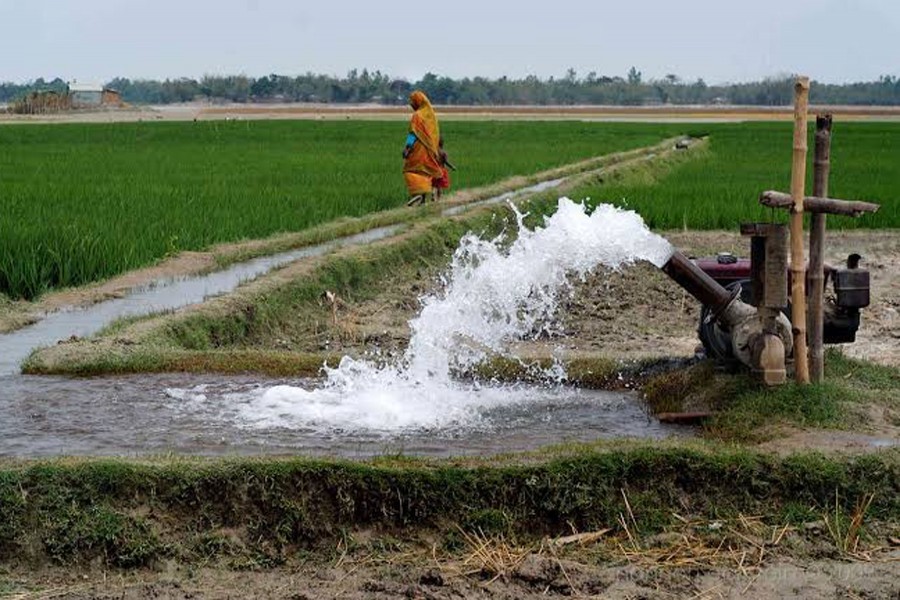The government is seriously thinking of subsidising diesel fuel for farmers during Boro season, agriculture minister Md Abdur Razzaque said on Thursday.
"If the Russia-Ukraine war prolongs and diesel price continues to surge globally," he said, "we have to find a way out so that farmers' production costs don't rise."
Mr Razzaque made the comment while addressing a seminar on the sustainable management of underground water for food security in the country's north-western region.
The Institute of Water Modelling (IWM) with the Bangladesh Agricultural University, and Commonwealth Scientific and Industrial Research Organisation of Australia (CSIRO) hosted it at BRAC Centre in Dhaka.
The minister said the price of diesel oil is now very high which may raise Boro production costs as the crop is almost dependent on supplementary irrigation.
"As we subsidise fertiliser," he said, "diesel will also be subsidised in the Boro season if the government thinks it necessary. The government is seriously considering this matter."
"Aman plantation has severely been affected by record low rainfall which is a great concern for us," he added.
He also pointed out that farmers invest a good amount from their returns from Aman season which may be affected amid any possible Boro losses.
Stating that importance is being attached to developing 'sustainable irrigation management' in food security, the minister said, "We're working on sustainable management of ground and surface water."
IWM executive director Abu Saleh Khan presided over the event where Prof Emeritus Dr Sattar Mandol, Australian deputy high commissioner in Dhaka Nadria Simpson, Bangladesh Agricultural Research Institute director general Debashish Sarker and Barind Multipurpose Development Authority (BMDA) executive director Md Abdur Rashid, among others, spoke.
CSIRO expert Dr Mohammad Mainuddin presented the key parts of the study, claiming that producing one kilogram of Boro rice requires 584-661 litre water against the earlier predicted 3,000-5,000 litres.
It said only lifting water for irrigation is not responsible for the fall in groundwater table, rather water withdrawal upstream is one of the key reasons.
Other causes are a change in the cropping pattern, decline in water bodies, a change in land usage pattern and reducing water in rivers during dry season.
The study claimed that further extension of Boro has almost stopped in the Barind region for the last one decade as farmers re-switched to Aus crops.


